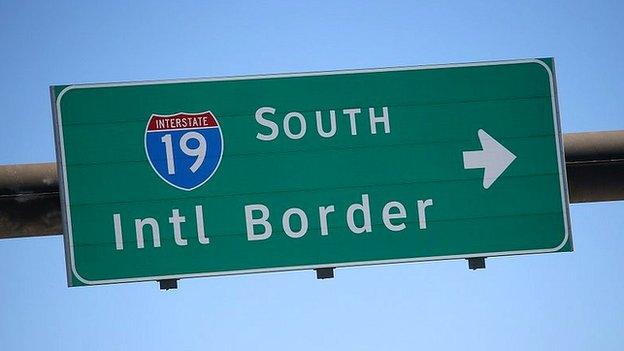Nafta can be discussed, but not renegotiated, says Mexico
- Published
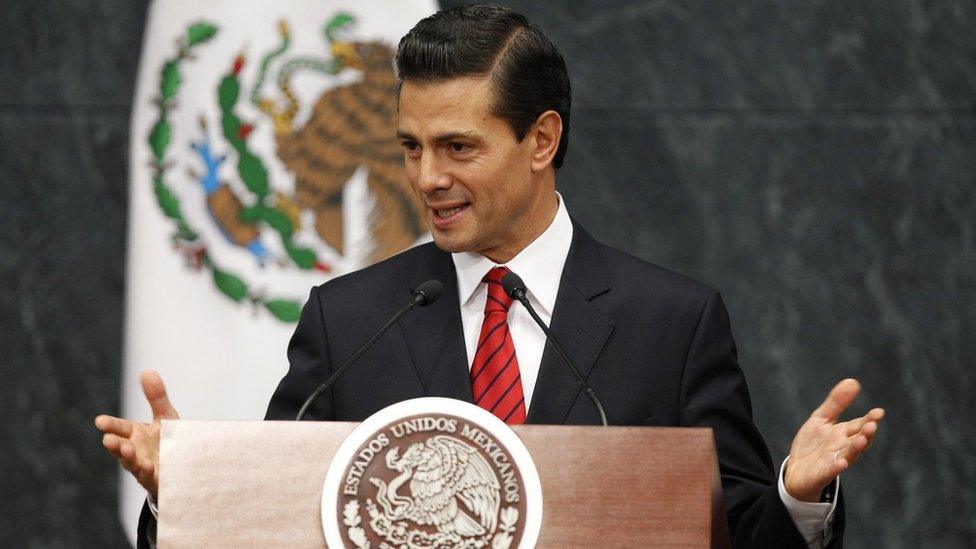
Mexican President Enrique Pena Nieto will meet Donald Trump, possibly before his inauguration in January
Mexico is willing to discuss the North American Free Trade Agreement (Nafta) with US President-elect Donald Trump, the government says.
Economy Minister Ildefonso Guajardo said Mexico would try to explain the "strategic importance" of the deal for the region to Mr Trump, who has heavily criticised it.
Canadian Prime Minister Justin Trudeau also said he was open to talks.
Nafta came into effect between the three countries in 1994.
Mr Trump has called it the worst trade deal the US has ever signed.
Trump and trade: A radical agenda?
His strong protectionist sentiments on the campaign trail helped to win support in areas that were formerly manufacturing centres. The Republican has pledged to bring back US jobs lost to globalisation.
Mexico and Canada fear losing access to the US market, on which they heavily depend.
'Just dialogue'
The Mexican peso hit a record low following Donald Trump's unexpected election victory and fell again on Thursday after recovering slightly.
"We're ready to talk so we can explain the strategic importance of Nafta for the region," Mr Guajardo said.
"Here we're not talking about... renegotiating it, we're simply talking about dialogue," he added.
Foreign Minister Claudia Ruiz Massieu said Mexico was willing to aim to "modernise" Nafta with a Trump government and Canada, but also ruled out renegotiation.
Mr Trudeau said it was important to be open to discussion on trade deals.
"If the Americans want to talk about Nafta, I'm more than happy to talk about it," he said.
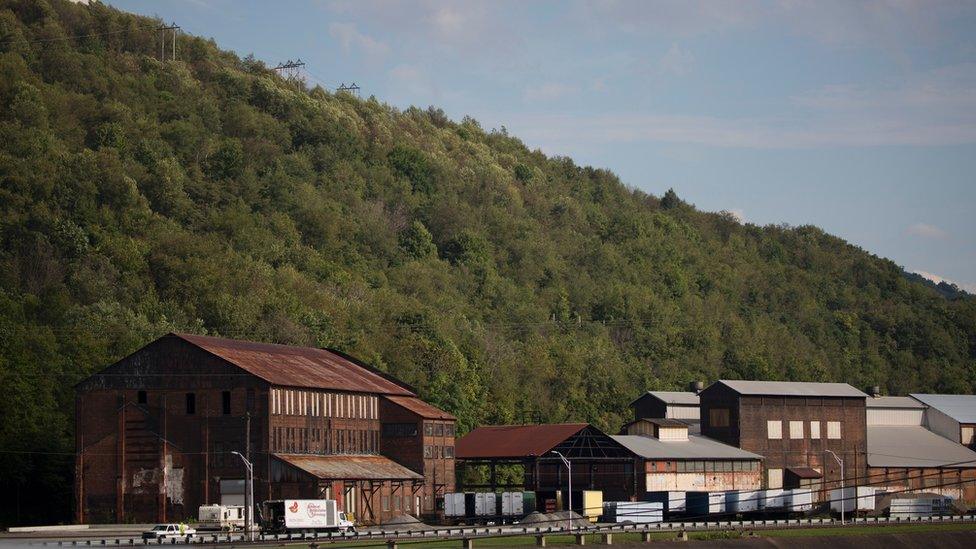
Donald Trump won key states in the so-called Rust Belt, a former industrial region
No date has been set for talks but Mexican President Enrique Pena Nieto has said he and Mr Trump have agreed to meet, possibly before the latter's inauguration in January.
Aside from attacking Nafta, Mr Trump has also heavily criticised the Trans-Pacific Partnership (TPP), a hugely ambitious deal signed between 12 countries that Mexico hoped to use to modernise Nafta and expand its trade with Asia.
Mr Guajardo said that in the event the TPP is not ratified by the US Congress, signatories should consider trying to implement the rest of the agreement without it.
President-elect Trump has also angered Mexico by saying he would make it pay for a wall he wants to build on the shared border in order to keep out illegal migrants.

What is Nafta?
The North American Free Trade Agreement came into effect between the US, Canada and Mexico in 1994 when Bill Clinton was US president
It created one of the world's largest free trade zones by reducing or eliminating tariffs on most products
The pact was meant to benefit small businesses by lowering costs and reducing bureaucracy to facilitate buying and selling abroad
Whether it has ultimately helped or harmed Americans is hotly debated.
The Congressional Research Service, which provides independent analysis, said in 2015: "In reality, Nafta did not cause the huge job losses feared by the critics or the large economic gains predicted by supporters." It also said: "The net overall effect of Nafta on the US economy appears to have been relatively modest, primarily because trade with Canada and Mexico accounts for a small percentage of US GDP."

- Published27 September 2016
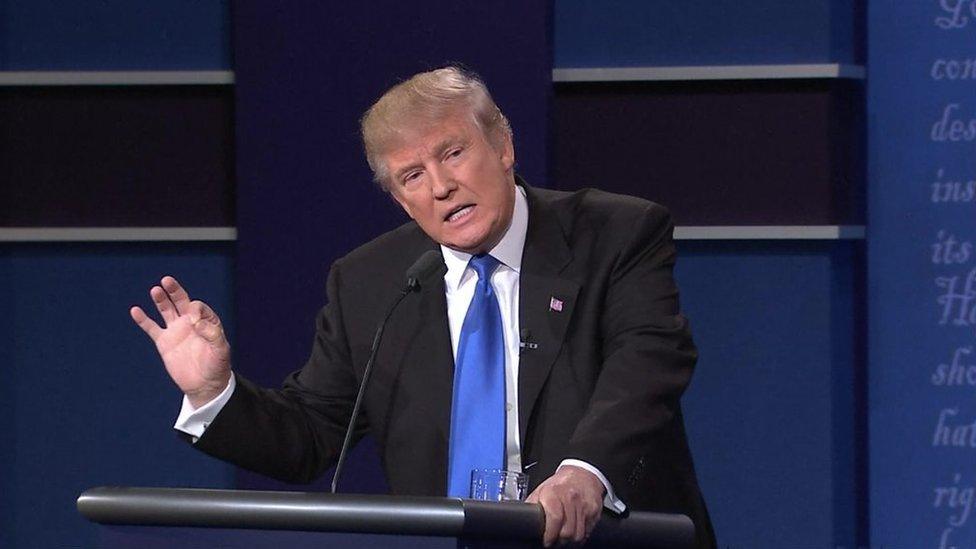
- Published10 November 2016
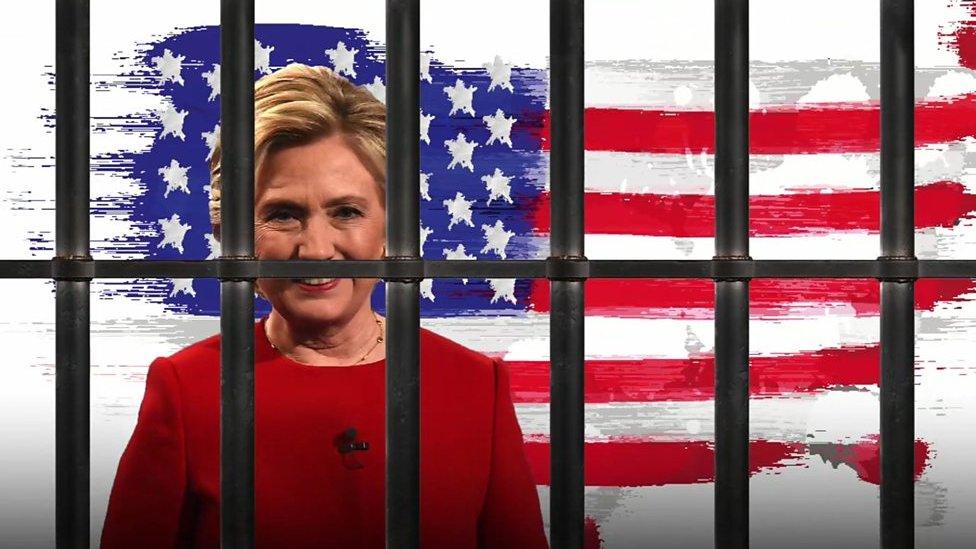
- Published9 November 2016
